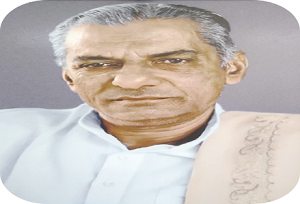Vision
Department of excellence imparting strong foundation in Applied Physics for developing competent technocrats.
Mission
Committed to:
- Develop competent and committed faculty in the light of outcome based education.
- Motivate and encourage the students to gain scientific temperament and creativity in engineering physics through interactions among faculty and students
- Provide strong theoretical foundation complemented with extensive practical training to achieve excellence
Short Term Goals:
- Academic performance excellence in basic sciences
- Guest lecturers/seminars from eminent faculty
- Faculty development programmes
- Project proposals and fund raising
Mid Term Goals:
- Modernization of Physics labs
- Conducting National conference
- Establishment of research centre
Long Term Goals:
- Inter disciplinary research activities
- Establishing centre of excellence
Program Outcomes (POs) : (1) – (12):
Programme Outcomes
- Engineering knowledge: Apply the knowledge of mathematics, science, engineering fundamentals, and an engineering specialization to the solution of complex engineering problems.
- Problem analysis: Identify, formulate, review research literature, and analyze complex engineering problems reaching substantiated conclusions using first principles of mathematics, natural sciences, and engineering sciences.
- Design/development of solutions: Design solutions for complex engineering problems and design system components or processes that meet the specified needs with appropriate consideration for the public health and safety, and the cultural, societal, and environmental considerations.
- Conduct investigations of complex problems: Use research-based knowledge and research methods including design of experiments, analysis and interpretation of data, and synthesis of the information to provide valid conclusions.
- Modern tool usage: Create, select, and apply appropriate techniques, resources, and modern engineering and IT tools including prediction and modeling to complex engineering activities with an understanding of the limitations.
- The engineer and society: Apply reasoning informed by the contextual knowledge to assess societal, health, safety, legal and cultural issues and the consequent responsibilities relevant to the professional engineering practice.
- Environment and sustainability: Understand the impact of the professional engineering solutions in societal and environmental contexts, and demonstrate the knowledge of, and need for sustainable development.
- Ethics: Apply ethical principles and commit to professional ethics and responsibilities and norms of the engineering practice.
- Individual and team work: Function effectively as an individual, and as a member or leader in diverse teams, and in multidisciplinary settings.
- Communication: Communicate effectively on complex engineering activities with the engineering community and with society at large, such as, being able to comprehend and write effective reports and design documentation, make effective presentations, and give and receive clear instructions.
- Project management and finance: Demonstrate knowledge and understanding of the engineering and management principles and apply these to one's own work, as a member and leader in a team, to manage projects and in multidisciplinary environments.
- Life-long learning: Recognize the need for, and have the preparation and ability to engage in independent and life-long learning in the broadest context of technological change.
Physics Theory
Course Outcomes (P17PH12/22) (COs)
At the end of the course the students should be able to:
CO1 - Explain the basics of elastic properties of material and some of their engineering applications; to understand dielectrics on the basis of polarization.
CO2 - Comprehend the basics of Quantum Mechanics and Black body radiations which explain the discretisation of energy levels.
CO3 - Explain the basic electrical properties of materials namely the conductivity in metals, semiconductors & effect of electric field on dielectric materials.
CO4 - Give an account of basis of Nano science and Nano Technology & superconductivity with the underlining principles.
CO5 - Apply basic concepts of Lasers, optical fibers, ultrasonics & Acoustics in the field of industry, medicine, telecommunication and engineering applications.
Physics Laboratory
Course Outcomes (P17PHL17/27) (COs)
At the end of the course the students should be able to:
- Develop the skill of setting and conduct the experiments relevant to basic concepts, theories and phenomenon of Physics.
- Use different measuring tools and techniques to conduct the experiments.
- Give the physical interpretation for observed measurements and determine the relevant physical quantities.
